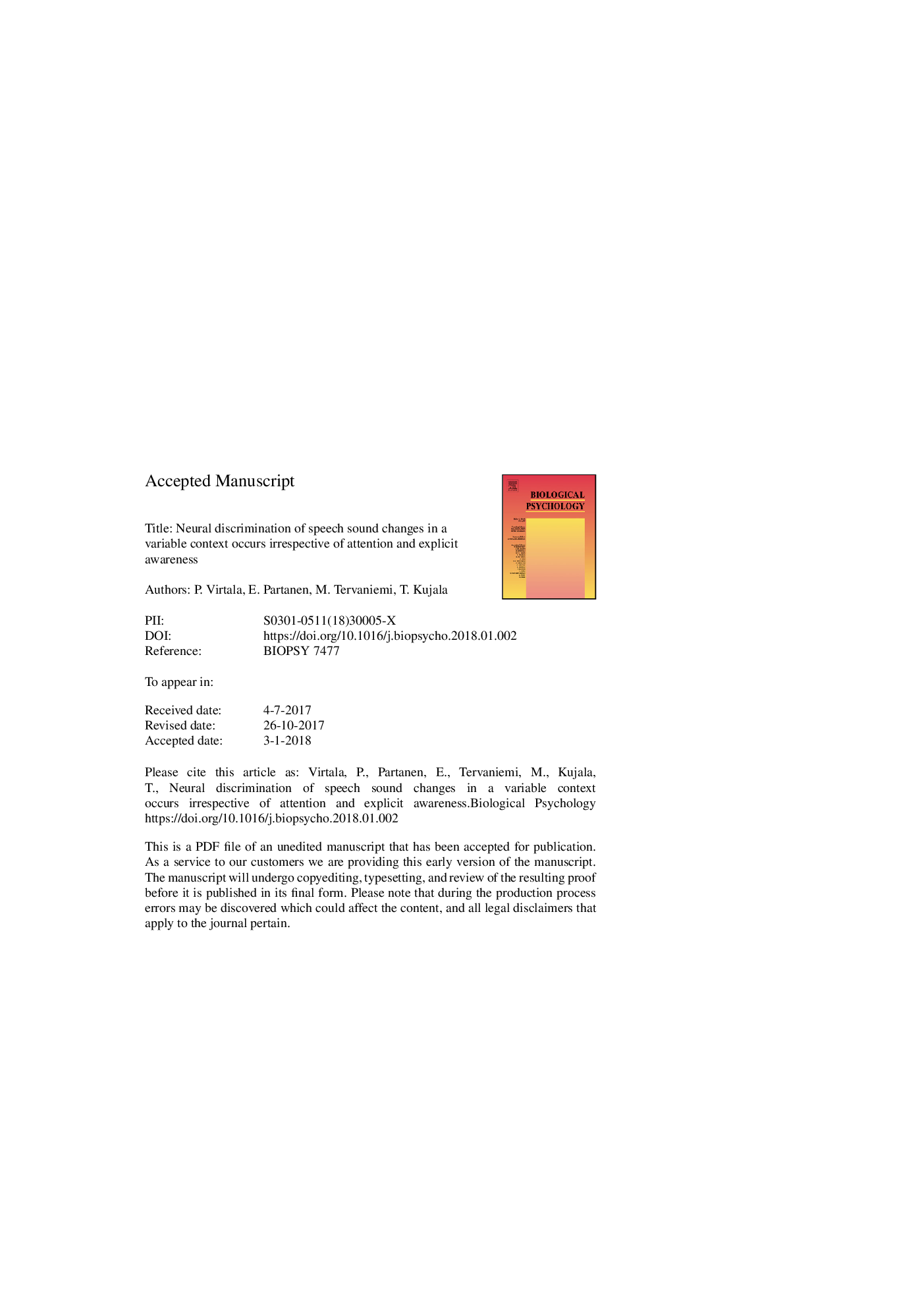| Article ID | Journal | Published Year | Pages | File Type |
|---|---|---|---|---|
| 7278212 | Biological Psychology | 2018 | 43 Pages |
Abstract
To process complex stimuli like language, our auditory system must tolerate large acoustic variance, like speaker variability, and still be sensitive enough to discriminate between phonemes and to detect complex sound relationships in, e.g., prosodic cues. Our study determined discrimination of speech sounds in input mimicking natural speech variability, and detection of deviations in regular pitch relationships (rule violations) between speech sounds. We investigated the automaticity and the influence of attention and explicit awareness on these changes by recording the neurophysiological mismatch negativity (MMN) and P3a as well as task performance from 21 adults. The results showed neural discrimination of phonemes and rule violations as indicated by MMN and P3a, regardless of whether the sounds were attended or not, even when participants could not explicitly describe the rule. While small sample size precluded statistical analysis of some outcomes, we still found preliminary associations between the MMN amplitudes, task performance, and emerging explicit awareness of the rule. Our results highlight the automaticity of processing complex aspects of speech as a basis for the emerging conscious perception and explicit awareness of speech properties. While MMN operates at the implicit processing level, P3a appears to work at the borderline of implicit and explicit.
Related Topics
Life Sciences
Neuroscience
Behavioral Neuroscience
Authors
P. Virtala, E. Partanen, M. Tervaniemi, T. Kujala,
